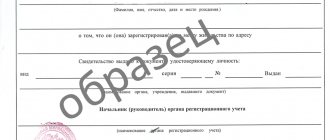Notarized will
This form of making a will is the most common today. The main provisions concerning this type of will are enshrined in Art. 1125 of the Civil Code of the Russian Federation. Since a will is an important legal document, the presence of a notary is mandatory. The testator is free to make a will in one of the following ways:
- come to the notary with a will already written;
- write a will in the presence of a notary;
- dictate the text of the will to the notary.
At the same time, it is important to remember that in the case when the notary wrote down the text of the will from the words of the testator, the testator must read the entire text of the will, typed by the notary, in the presence of the notary himself. In a situation where the testator does not have the opportunity to read the text on his own, the text of the will must be read out by a notary, about which an inscription must be made on the will, indicating the reasons why the testator could not read the text of the will on his own.
Sample of a notarized will
The legislator, as a prerequisite for the validity of a will, provides for the presence of the testator’s own signature on the will. At the same time, the legislator did not ignore persons who, due to physical disabilities, are not able to put a personal signature. Under such circumstances, it is permitted, at the request of the testator, for the will to be signed by another citizen in the presence of a notary. Under the current conditions, the will must indicate the reasons why the testator was unable to sign the will in person, as well as the passport details of the citizen who signed the will.
In accordance with Art. 47 of the Methodological Recommendations for Certifying Wills, if a deaf or deaf-mute citizen approaches a notary, the text of the will can be translated by a sign language interpreter.
Since the trend of inheritance disputes continues unabated, in judicial practice there are quite often cases of attempts to challenge wills due to the physical inability of a deceased relative to sign or dictate a will. So, for example, the plaintiff went to court with a demand to declare the will invalid, due to the fact that the deceased relative, due to her illness, was unable to speak and was unable to express her will. The court, having examined the case materials, rejected the plaintiff’s claim due to the fact that, in addition to the presence of a handwriting examination indicating that the signature on the will belonged to the deceased, the explanations of the notary who certified the will were heard at the court hearing. The notary indicated that the testator really did not speak due to illness, but at the same time, she clearly and clearly expressed her will in writing, answering the questions posed in writing, on a sheet of paper presented by the notary (Appeal ruling of the St. Petersburg City Court dated November 17, 2016 No. 33-22292/2016).
In 2021, the Supreme Court of the Kabardino-Balkarian Republic identified an important vector of practice in will disputes. Thus, in its ruling, the court indicated that the absence in the will of an indication of a medical diagnosis that prevents the testator from signing the will personally is not grounds for declaring the will invalid (Appeal ruling of the Supreme Court of the Kabardino-Balkarian Republic dated March 2, 2021 in case No. 33- 292/2016).
Notarization is mandatory for almost all forms of wills
As mentioned above, challenging wills is a fairly common practice, because when it comes to such valuable property as an apartment, people try to challenge the will using any inaccuracies and shortcomings in the will. For example, in one of the cases, the plaintiff tried to challenge the wills, citing, among other things, the fact that the will did not contain a transcript of the testator’s signature. The court, in response to this thesis, rightly pointed out that the personal writing by the testator of his data (last name, first name, patronymic) is of a recommendatory nature and the absence of such a transcript in itself does not entail the invalidity of the will (Appeal ruling of the St. Petersburg City Court dated October 5, 2017. N 33-21076/2017).
To summarize the above, I would like to note that despite the fact that this type of will is the most common, when drawing it up it is worth taking into account the smallest nuances, which a qualified lawyer can help you understand.
Closed will
The regime for drawing up a closed will is regulated in Art. 1126 of the Civil Code of the Russian Federation. The peculiarity of the mentioned will is that no person other than the testator himself, not even a notary, can study the contents of the will. Taking into account the above, the legislator enshrined in the Civil Code a mandatory condition that such a document must be personally written and signed by the testator. Failure to comply with this condition will result in the invalidity of a will of this type. The mentioned article of the Civil Code also names the procedure for transferring such a will to a notary. When drawing up a closed will, you must adhere to the following algorithm of actions:
- the will is transferred by the testator to the notary in a sealed envelope;
- the envelope must be handed over to the notary in the presence of two witnesses who put their signatures on us;
- the envelope signed by the witnesses is sealed by the notary in another envelope;
- On the last envelope, the notary makes a mark containing information about the testator, as well as about the witnesses who left their signatures.
A closed will must be transferred in a sealed envelope.
Within fifteen days after the heirs provide the testator's death certificate, the notary opens the envelope in the presence of two witnesses, as well as in the presence of legal heirs who have expressed a desire to be present at the procedure for opening the envelope. The text of the will must be read aloud by the notary, after which a protocol is drawn up. Some lawyers mention cases when an ironic testator put a blank sheet or a sheet with drawings in an envelope. In this case, the inheritance case under a closed will is terminated, and inheritance is carried out according to law.
I would like to note that drawing up a closed will seems advisable in rare cases, since the notary is bound by professional secrecy and has no right to disclose the terms of even a simple notarial will. Perhaps this type of will is relevant in small areas where everyone knows each other and the degree of trust in the notary is low.
A will equivalent to a notarized will
Sometimes life circumstances arise in which a citizen who wants to draw up a document about his last will does not have an objective opportunity to contact a notary, but at the same time wants to exercise his right to dispose of his property after death. In this case, the legislator has provided for a number of situations in which wills drawn up will be equal to notarized wills. A specific and closed list of situations and persons who have the right to certify such wills is given in Art. 1127 Civil Code of the Russian Federation. It must be emphasized that, again, such a will must be in writing and certified by one of the officials mentioned in the article. The only exception can be a will drawn up in emergency circumstances: it also requires a written form, as well as the presence of two witnesses, but is not certified by anyone.
It is necessary to carefully study the list of persons and situations in which a will can be equated to a notarized one
At the same time, despite the opportunity provided by the legislator to certify a will not by a notary, but by other persons, such wills are much more often and easier to challenge, since failure to comply with any conditions for drawing up such a will entails its invalidity, and persons who certify such wills, by virtue In their profession, they do not always understand the legal subtleties of certifying wills. Thus, the plaintiff appealed to the court with a demand to declare the will invalid due to its non-compliance with legal requirements. The court found that the will was drawn up by the testator in the hospital, after which it was certified by the hospital surgeon on duty, who, by virtue of the law, is not a person who has the right to certify this type of will. Based on this, the court came to the conclusion that the will was invalid (Appeal ruling of the Supreme Court of the Republic of Bashkortostan dated March 24, 2016).
In these circumstances, it is advisable, if possible, to consult an experienced lawyer before making such a will.
What rules are established by Article 1124 of the Civil Code of the Russian Federation
Paragraph 1 of the article contains two main requirements for a testamentary document : written form and notarial confirmation. The notary may be from a government organization or from a private office. The absence of his signature is allowed in exceptional cases - for example, during an emergency.
Reference . If one of the basic rules is not followed, the will will be considered invalid.
Paragraph 2 introduces a clarification for the institution of witnesses : not every citizen can become one.
Clause 3 complements the reasons why a testamentary injunction may become invalid . The procedure for making certain types of testamentary dispositions requires the presence of a witness. If he did not appear in the process, then the inheritance will proceed according to law, and not according to the will.
According to the last paragraph, the posthumous disposition must indicate the place and date of its certification.
Testamentary disposition of the right to funds in banks
This type of will is interesting because such an order can be drawn up not only by a notary, but also by contacting the bank where the account with the funds is located. Moreover, such an order must also be signed by the testator and certified by a bank employee who has the authority to perform such an action. This type of will is regulated not only by Art. 1128 of the Civil Code of the Russian Federation, but also the Rules for making testamentary dispositions for funds in banks.
An important point is that making such an order at the bank is free.
To draw up a testamentary disposition in a bank, the presence of a notary is not required.
Judicial practice in this category of cases is very interesting and allows one to take into account possible nuances when drawing up testamentary dispositions. Thus, the plaintiff applied to the court with a request to recognize the right of ownership of funds through inheritance. At the same time, the court found that the deceased had a bank account in respect of which a testamentary disposition was drawn up in favor of the plaintiff. After the order was drawn up, this account was closed by the testator, but two other deposits were opened in the same bank branch. The plaintiff believed that since the testamentary disposition had not been canceled and was drawn up in her favor, then she had the right of ownership to all funds stored on deposits of the deceased. The court did not agree with the plaintiff and rightfully indicated that the will of the deceased was directed to this specific account and could not be extended to all other accounts opened in her name. In this situation, it appears that the testator was truly unaware that closing the account would automatically revoke the testamentary disposition, but the provisions of the law were stronger. This is why it is so important to consult with lawyers when taking important legal steps such as drafting a will.
Who can be appointed as heir?
The Russian Civil Code allows you to make a will in favor of 1 or more heirs. When drawing up a document, you must take into account the requirements of Art. 1116 of the same code. Therefore, you can enable:
- any living citizen;
- a person conceived during the life of the testator, provided that he is born alive;
- legal entities, including an inheritance fund opened in accordance with the will of the deceased;
- The Russian Federation and its constituent entities, municipalities, other countries and international organizations.
But how to write a will if there is no confidence in the life and health of the heirs under it? In this case, the legislation allows for the appointment of a sub-heir for situations related to the departure of the main one for one reason or another (Part 2 of Article 1121 of the Civil Code of the Russian Federation).
Will in emergency circumstances
This type of will seems to be the most difficult and easily contested. In Art. 1129 of the Civil Code of the Russian Federation, the legislator establishes that this type of will is drawn up in conditions that clearly threaten the life of the testator. At the same time, a written form of the will is mandatory, and the presence of two witnesses is also required in the presence of whom the will is written and signed. One can imagine that in emergency situations, great luck would be to find not only a pen and paper to draw up a will, but also two witnesses who, in such conditions, would agree to be present when this action is carried out. The amount of judicial practice in this category of cases is not so extensive, since compliance with all of the above conditions is in itself difficult.
Least common type of will
Joint wills
This category of will is a novelty in the legislation of the Russian Federation and is of interest to married couples in a registered marriage. The Civil Code does not limit such couples in expressing their will and allows them to distribute the shares of heirs in the estate in any way, disinherit any of the heirs, and even provide for the conditions of a will in the event of the simultaneous death of spouses, as well as other conditions specified in Art. 1118 of the Civil Code of the Russian Federation.
An interesting innovation is that when certifying a joint will, the notary must video record this action, provided that the spouses have not expressed their refusal.
As with other types of wills, a mandatory written form is established for a joint will of spouses, and the will itself must be certified by a notary. At the same time, the legislator deprived the spouses of the right to draw up a joint will in the form of a closed will, as well as to draw up a joint will in emergency circumstances. In these cases, the provisions of an individual will must apply.
Married couples should take a closer look at this type of will.
The legislator's position that the dissolution of a marriage entails the termination of the validity of a joint will seems logical.
But drawing up a closed will, after a joint will, will no longer be possible in full: if one of the spouses draws up a closed will, the notary is obliged to send the second spouse a notice of the fact of drawing up such a will.
In general, it seems that this design is convenient and is aimed at supporting each other by loving spouses, for example, if the spouses own an apartment, then in a joint will they have the right to provide for the condition that the surviving spouse will live in this apartment until his death. death, and only after that it will pass to the remaining heirs.
Since the institution of joint wills is very young for the Russian Federation, there is no judicial practice in this category of cases yet.
What can you bequeath to your heirs?
An important feature of Russian legislation should be considered the ability to transfer to your successors under a will any rights and property, including even that which will be acquired in the future.
As a rule, the will includes:
- any real estate and shares in it;
- vehicles;
- enterprises and shares in them;
- securities;
- jewelry;
- copyrights and other rights to receive various payments;
- bank deposits and cash;
- luxuries
The main condition is one: the property right (other right) belongs to the testator, and it can be depersonalized for transfer to the heir. Bequeathing property and rights that do not belong to the testator is not allowed.





